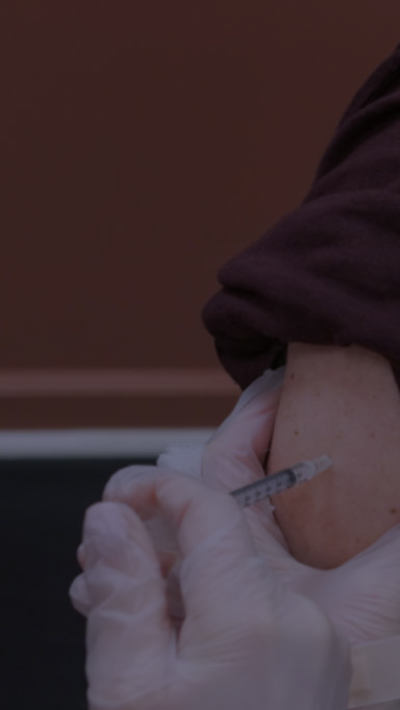Contents
Workplace Watch is an occasional publication tracking legislative, regulatory, policy and enforcement developments in employment, health and safety and immigration.
Topics covered in this publication include:
- Big wins for coalition minors in labour market
- Migrant exploitation a live issue
- Employment Court hears test case on permanent name suppression
- Employee’s Facebook posts legitimate grounds for dismissal
- Decision underlines cost of poor process
- Retail employer offers unlimited sick and annual leave
- Decision on only defended Whakaari Island charges
- Woolworths to invest $45m in worker safety
Chapter 1
Employment
Big wins for coalition minors in labour market policy
Both ACT and New Zealand First scored big wins in the coalition negotiations on labour market policy.
ACT Deputy Leader Brooke van Velden landed the Workplace Relations and Safety portfolio and NZ First won a commitment to “moderate increases to the minimum wage every year”.
It’s probably safe to assume that delivering on this promise will not be Minister van Velden’s favourite job, given that ACT campaigned on a three-year freeze.
But we expect she will be an energetic Minister and note that ACT also managed to get National to sign up to a “reform” of New Zealand’s health and safety law and regulations. There is nothing in ACT’s manifesto to shed any light on what this might entail.
Other commitments ACT secured are:
- That the Government “consider” simplifying personal grievances (PGs), in particular removing eligibility for remedies if the employee is at fault, and setting an income threshold above which a PG could not be pursued, and
- Maintain the status quo that contractors who have explicitly signed up for a contracting arrangement can’t challenge their employment status in the Employment Court.
Items in ACT’s policy programme that van Velden might be able to progress without the specific sanction of the coalition agreements are:
- Enforcing a requirement that the Employment Relations Authority deliver its written determination within a month of concluding an investigation; and
- Removing the Authority’s ability to unilaterally reinstate an employee.

All three coalition partners support the repeal of the Fair Pay Agreements legislation by Christmas and the expansion of 90-day trials to all businesses. And although it has not been confirmed yet, we expect work on the Holidays Act will continue because all parties agree that reform is necessary.
Polices in the immigration area that ACT got coalition sign-up for include:
- Increasing the number or workers allowed under the Recognised Seasonal Employer Scheme, and
- Removing the requirement to pay at least the median wage to the holders of Skilled Migrant Category visas.
Links: National-ACT Agreement: National-NZF Agreement, Cabinet list
Migrant exploitation a live issue
A three-day sting operation by the Labour Inspectorate and Immigration and Compliance Investigations of 85 Auckland businesses suspected of misusing the Accredited Employer Work Visa scheme found significant non-compliance.
Breaches included:
- Wages below the minimum wage rate;
- Absence of employment contracts;
- Inadequate or no record-keeping;
- Withholding of employee holiday and leave entitlements;
- Breach of visa conditions, and
- Employers demanding money from employees.
It is expected that between 10 and 15 infringement notices will be issued, resulting in some accredited employers losing their accreditation.
Employment Court hears test case on permanent name suppression
A full bench of the Employment Court has heard an application for permanent name suppression from a restaurant worker who reached a confidential settlement agreement with his former employer, details of which were later circulating through the industry.
The worker’s argument is that publication will affect his reputation and knowledge that he has been in a dispute will reduce his job chances. The significance of the case is indicated in the fact that there are 11 intervening parties.
Those against the change include the New Zealand Law Society, the Employers and Manufacturers Association (EMA), Business New Zealand, Human Resources Institute of New Zealand, Employment Law Institute of New Zealand, and news media outlets. Those for include the New Zealand Council of Trade Unions and the Privacy Commissioner.
Law Association article

Employee’s Facebook posts legitimate grounds for dismissal
The Employment Court has upheld the former Wairarapa District Health Board’s action in dismissing a nurse after she shared anti-vaccination and anti-Muslim content with 86 friends on her Facebook page. The DHB followed correct process before taking the decision.
Factors influencing the Court’s ruling were that:
- The anti-vax posts were directly contrary to the advice of the Ministry of Health and the DHB and had the potential to undermine public confidence in those organisations
- Among the nurse’s Facebook audience were workers in the aged care sector where her views as a respected medical professional could be persuasive, creating risk to the residents, and
- The anti-Muslim comments ran counter to the Codes of Conduct of both the DHB and the Nursing Council of New Zealand.
The nurse’s claim for unjustified dismissal was rejected.
Decision underlines cost of poor process
The Employment Court has referred to its earlier decision in GF v Comptroller of New Zealand Customs in a subsequent decision where tikanga application was raised by the employee in an unjustified dismissal claim.
Tikanga was engaged in Pact Group v Robinson because the company had committed to incorporating it into the workplace and because the employee said the company’s treatment of her- particularly the failure to communicate with her face-to-face – left her feeling stripped of her mana and culturally disadvantaged.
The employer had failed to engage with the employee when she raised these cultural concerns around how the process was being carried out. The Court found that, where an employer has tikanga obligations and an employee raises a tikanga issue during a disciplinary process, a fair and reasonable employer will stop to consider what an appropriate process might require in light of its tikanga obligations.
This case is significant because it is an early indication of the impact of the GF decision. The Court noted that the GF decision demonstrated:
“the statutory framework for employment relationships does not preclude the incorporation of tikanga/tikanga values and [the Court] noted the natural alignment of employment law and tikanga principles”.
Retail employer offers unlimited sick and annual leave
Hobby Lords, a new Dunedin store with growth ambitions as a franchise, is offering unlimited sick and annual leave to attract employees and keep them happy.
Managing director Liam O’Neill said he’d got the idea from his experience as an employee in the automotive sector.
“I've been in the trenches and in the corporates and I've seen how burnout is a massive issue, especially over the last few years.’’
You can read more here
90-day rule out for accredited employers
As of 29 October 2023, employers hiring workers under an Accredited Employer Work Visa have been unable to apply the 90-day rule.
This was a Labour Government policy designed to prevent migrant abuse, but it may be short-lived given the new Government’s commitment to restore the 90-day right to all employers.
See article


Spreading the gender pay gap reporting net
Plans by the previous Government to make gender pay gap reporting compulsory for entities with more than 250 employees are now in limbo. It was estimated that the move would capture 900 employers initially and the intention was to drop the threshold to 100 within four years, capturing a further 2,700 entities.
Action plans to address the discrepancy would be voluntary at first but that decision would be reviewed after three years to determine whether compulsion may be necessary to achieve the desired level of progress.
The policy was announced by then Minister for Women Jan Tinetti and then Associate Minister for Workplace Relations and Safety Priyanca Radhakrishnan. Whether it will survive the change of government is yet to be determined.
Check out the statement
Chapter 2
Health & safety
Decision on only defended Whakaari Island charges
Whakaari Management Ltd, the body responsible for managing the island on behalf of the owners, Whaakari Trustees Ltd, has been found guilty of not meeting its obligations under section 37 of the Health and Safety at Work Act.
Section 37 provides that a Person Conducting a Business or Undertaking (PCBU) must ensure “so far as is reasonably practicable, that the workplace, the means of entering and exiting the workplace, and anything arising from the workplace are without risks to the health and safety of any person”.
The Court found that WML should have engaged “the necessary expertise” to assess the risk of allowing commercial tours on an active volcano, and it should have done so before granting licences as well as from time to time afterwards.
It did not accept WML’s argument that the tour operators’ engagement with GNS Science met this need, especially as the information flow from GNS to WML was “ad hoc, infrequent, unstructured, informal, and incomplete – when much more was required.”
And any comfort WML may have had about the island’s safety should have ended on 27 April 2016 when Whakaari erupted violently, fortunately at night, when no one was there.
“In WML’s case, it should have appreciated it could no longer rely on risk assessment work being done by others… As a bare minimum, it needed to engage volcanology and health and safety expertise to fully understand what its obligations were … That included assessing risk.”
Court judgment
WorkSafe downsizing
WorkSafe will lose 113 roles as a result of a Strategic Baseline Review commissioned in 2021 by the Labour Government. Staff numbers will still be higher than they were pre-COVID, and frontline inspectors and investigators will be unaffected.
Whether the retrenchment will be impacted by, or additional to, the 6.5% on average savings that the incoming National Government has signalled it will be requiring from most government departments is not known at this stage.
WorkSafe statement

Coronet Peak to pay more than $.5m for skier fatality
Coronet Peak ski field (NZ Ski Ltd) has been fined $440,000 and ordered to pay reparation of $130,000 for the death of an experienced skier in September 2019 after she collided with a wooden fence post at the end of a ski run.
WorkSafe found “risk assessment failures” were central to the death, having obtained a report prepared by a ski patroller in 2014 that identified 28 fence posts the company had erected around a water reservoir which had already caused injuries and which the staff member risk-rated as 10 out of 10.
WorkSafe statement
Woolworths to invest $45m in worker safety
Woolworths supermarket chain is to spend $45m on worker safety initiatives – including walkie-talkies, fog cannons and body cameras – after experiencing a 131% rise in physical assaults against staff in the last six months.
Head of health, safety and wellbeing Denva Wren said the problem was worse here than in Australia and was widespread: "Actually everyone coming into the supermarket, no matter what part of the country, there are people under pressure, under stress."
RNZ report

Talley’s under scrutiny
Talley’s Group Limited and its subsidiaries, including Affco and Open Country Dairy, will be monitored by a group of health and safety experts for more than two years following a detailed review of the company’s work culture by WorkSafe.
The Group has also set up an independent assurance board led by former Police Commissioner Mike Bush. The inquiry, allowed for under the Health and Safety at Work Act, was not sparked by a single incident but by a pattern of enforcement incidents over many years.
Read WorkSafe’s original statement
Guidelines being prepared on managing psychosocial risks at work
WorkSafe has consulted on good practice guidelines for managing psychosocial risks at work. They include:
- Defining and providing examples of psychosocial risks
- Explaining the importance of psychosocial safety
- Practical advice, illustrated by example, of how to manage psychosocial risks in a workplace context, and
- Pointers on how to respond when workers experience psychosocial harm at work.
The consultations close on 15 December.
See WorkSafe’s advisory
Our services
We can assist you in all areas of employment law, including health and safety, personal grievances, litigation, collective bargaining, disputes and mediations, redundancies, restructuring, senior executive employment, exit negotiations and post-employment arrangements.










































































































